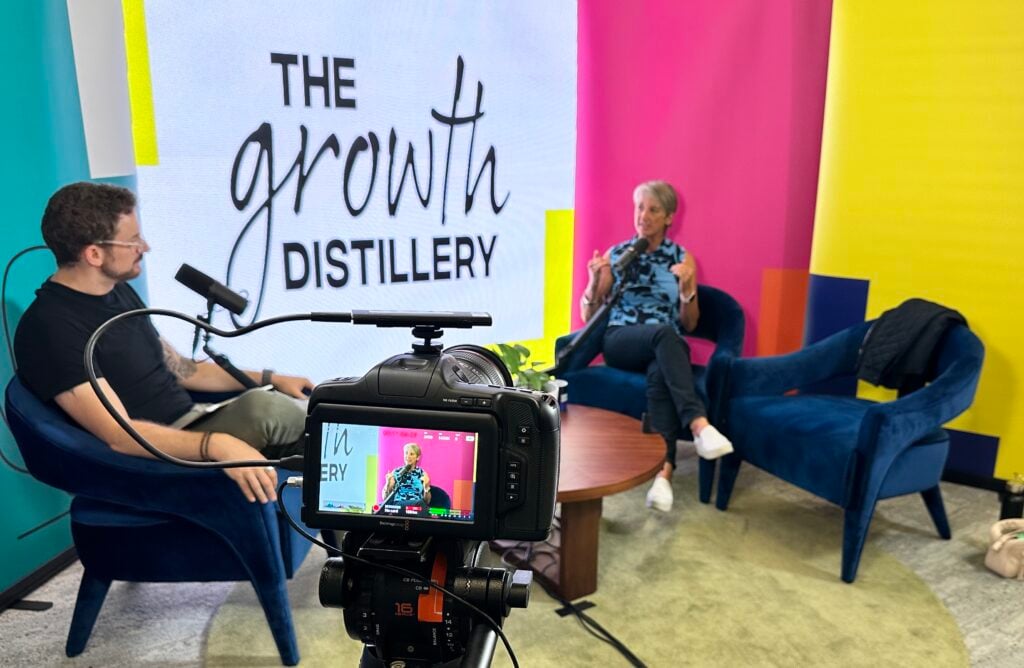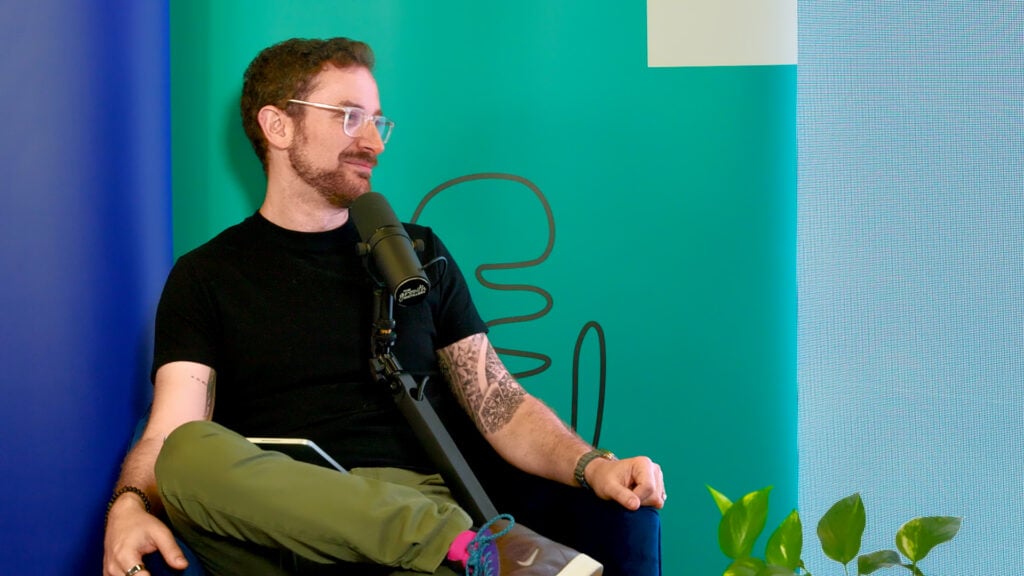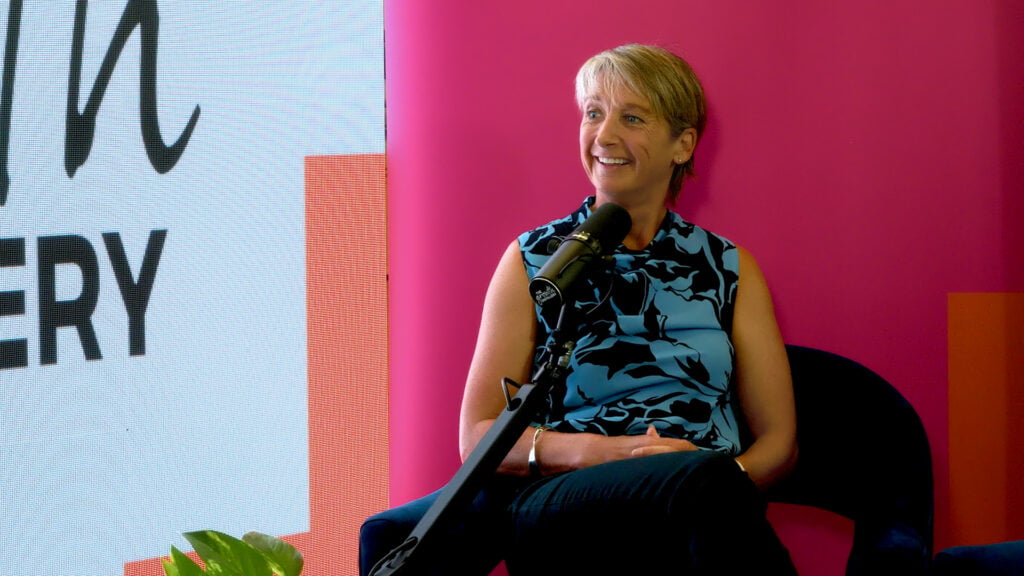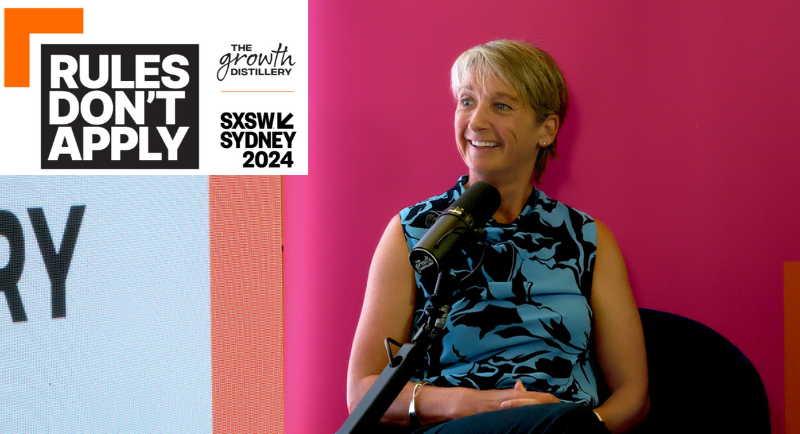As part of its presence at SXSW Sydney in 2024, The Growth Distillery hosted a series of 10 vodcasts (a podcast with video) hosted by Dan Krigstein and branded Rules Don’t Apply.
First guest on the series was Layne Beachley and Krigstein, Director of News Corp’s The Growth Distillery & The Growth Intelligence Centre, just might have launched the series with the best of an impressive selection of guests.

Here is his introduction to Episode 1 of Rules Don’t Apply:
“This series seeks to redefine the art of the possible because for those looking to navigate what’s next, the rules of today may just no longer apply,” said Krigstein.
“Welcome to what is going to be an exceptional week here at The Growth Distillery where we are throwing the baby out with the bath water.
“I am joined by Layne Beachley AO. Layne, if you have been living under a rock for the last 30 years, she is a surfing legend not just here in Australia but across the globe. She is a seven-time world champion, the only person ever to win that many consecutively.
“Technically eight if we were to count the ones that they’ve given you and pulled back. She’s not only a champion of surfing, what I love about what Lane does is she’s a fierce advocate for equality in sport. She has seen the sporting world change over her time.

Dan Krigstein
“She’s a passionate environmentalist. She’s chair of Surfing Australia as well as a champion for mental well-being. Layne is looking to empower one million people to become more centred, connected and confident through her incredible work at the Awake Academy.
“Her work was recognized in 2015 when she was made an Officer of the Order of Australia and let me tell you that is an achievement, to say the least. She still surfs every day, loves Rosé and she is human, I tell you, because her biggest weakness is hot chips. But of course, she doesn’t mind breaking a rule or two.”
There are many highlights in the 25-minute Rules Don’t Apply interview. Here are just a few.
What did you do differently?
As a competitor, it was very easy to conform and do what everyone else was doing. My objective and the way I feel that one of my competitive advantages was I didn’t do what everyone else was doing. I saw what everyone was doing and found a way to do it differently.
That enabled me to stay true to who I wanted to be and create a pathway for others to follow as opposed to just following the same old pathway. Simple things, for example, showing up to a contest site, watching where the surfers before me were surfing and always looking for somewhere else to go. Having discussions with the judges, asking them what, what are the conditions that they’re seeing?
What are they looking for today that may be a little bit outside of the box? What do they want to see? And surfing according to how I wanted to surf versus what the judging criteria expected of me.
Bringing in aspects of mindfulness and meditation, slowing everything down mentally so I could speed everything up physically.

Layne Beachley
Dropping her sponsor
One of the biggest things that I did, and that was in accordance of my values system, was I dropped my sponsor. I’m one of the only athletes to have done that. I know Barton Lynch did the same thing to his sponsor in maybe the 80s or 90s, but in 2004, I dropped my sponsor because of a values misalignment.
A lot of people saw it as stupid because I walked away from hundreds of thousands of dollars in sponsorship and I’ve never been sponsored since.
The motivation to do that came from asking them to meet me where I was, as opposed to pushing me to somewhere where I’m not really willing to go. That came down to the fact that I was a six-time consecutive world champion. I had won more world titles than their whole men’s team put together.
They were questioning my motivation and they were questioning my value to their company. I proposed doing a clothing brand with them.
They listened to my proposal and then stood up in front of the board of directors and said, “I’d rather practice my golf game than help you build a clothing brand.”
I really had a choice to make in that moment. Do I just stay there, suck it up and take the money? Or do I stay true to who I am, be authentic in this moment and be real and go, you know what?
